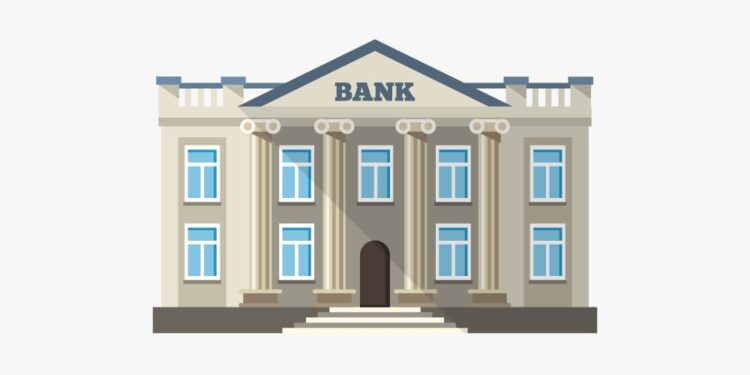The process of finalising upon a bank can feel overwhelming if you are looking to stick with it for a very long term. Picking a bank that adheres to your needs can alleviate the process of handling your finances and help you save money in the long run. There are a plethora of factors to consider; however, here are seven factors that you must always look for when making your ultimate call.
1. Type of account you wish to open
This section comes down to personal preference, whether you need a simple checking account or seek savings. First, figure out the types of bank accounts you wish to open, then search for a bank that offers the best offers on the type of account you need. These are the basic categories of accounts:
- Checking: In this account, you will keep the money that you spend regularly.
- Savings: This account is for stashing money that you do not intend to disturb for a while. For instance, you might want to raise an emergency fund, purchase a residential property, or save for an upcoming trip.
- Certificates of Deposit: These account types store your capital for a pre-determined amount of time, being a year or two, and seal in your interest rate for the entire term. CDs are beneficial if you do not require immediate access to your savings and do not want to risk your rate changing afterwards.
- Money Market Account: This account is analogous to a savings account, except banks typically make it simpler to access your savings by granting you a debit card or paper checks.
2. Look out for the best services
Some people tend to deal with all their finances with the same company. If you intend to do more than deposit your cash at a bank, look out for any of the following products and services:
- Investment accounts
- Financial planning
- Mortgages
- Credit cards
- Other loans (personal, auto, private student loans)
Finalise the additional tools you want from your bank, and pick the one that offers what you seek by meticulously researching every bank in your vicinity.
3. Account for interest rates
Checking accounts rarely pay any interest, or if they do, you will not find decent rates anywhere. But if you plan to open a savings account, CD, or money market account, it is imperative to check out how much you will gain in interest. You should put up with needless restrictions if you can earn a maximum level of interest on your deposits.
Also, make sure that even after dealing with constraints or inferior customer service, you do not face extra fees, as this can quickly negate the interest earned on your deposits. If you wish to seek a loan, pick a bank that offers low loan rates. Then, once you are paid off and no longer require a loan, shift to a bank that better complies with your other banking needs.
4. Seek low-fee institutions
The last thing you want is to lose wealth by opening a bank account. For instance, if you have three accounts with a bank, and you get charged a monthly expense for each, it can add up substantially. For monthly service fees, you will want a bank that offers the following features:
- No fees: Your preferred bank does not charge a monthly service fee on your account, regardless of any terms and conditions.
- Potential Fees Waiver: Many banks impose a monthly fee, but you can have it waived off by keeping a minimum balance or swiping your debit card a specific number of times each month.
- Low fees: Maybe you might not be eligible to enjoy a complete waiver on the monthly fee, but if the bank charges a low fee, that will hardly leave a scratch on your net worth.
These are not the only fees to keep in mind, but some others as well, including:
- Overdraft fees: If you feel concerned that you might overdraw your checking account, inquire about the overdraft charges. You can use overdraft protection, but many banks will still demand some fees if you have to use overdraft protection.
- ATM fees: It will help if you figure out the scale of the ATM network and if a bank will demand a fee to operate an ATM outside that network.
- Excess Transaction fees: Inquire about how much a bank will tax you for going over your transaction withdrawal limit as excessive fees in this domain might leave a hole in your pocket.
- Abroad Transaction fees: If you travel abroad frequently, inquire about the charges demanded by a bank for swiping your debit card overseas.
5. Decide between brick-and-mortar or online
One of the most crucial factors when picking a bank is to figure out whether you want a bank with physical stations or an online bank. Some people might prefer a brick-and-mortar bank as they like to walk into a facility and interact with a banker face-to-face. However, online banks typically demand lower fees and pay higher rates of interest.
6. Decide between a bank, banking platform, or a credit union
Check out these primary differences between banks, credit unions, and banking platforms to help you finalize a platform:
- Banks: They have relatively more locations than credit unions and pick up on the latest industry technology the fastest. Some banks offer more products, such as loans and credit cards, compared to credit unions.
- Credit unions: They provide better-personalized customer service relative to banks. As in the case of brick-and-mortar facilities, credit unions pay more rates.
- Banking platforms: These are online platforms that provide depositing accounts but are not technically banks. They have partner banks that provide them with insurance, making them safe for users. These platforms typically come with extra incentives, including budgeting tools or high-interest rates.
7. Bank services accessibility
The process of accessing your money must be as easy as possible. If you choose a brick-and-mortar bank, ensure that there are branches and ATMs in your vicinity or office. If you travel domestically, consider going for a financial body with an extensive branch/ATM network so you can have access to your money regardless of your geographical location. Online banks have ATM networks as-well, so make sure that you can find ATMs nearby to use with no charges.
Final words
The process of picking a bank does not have to be cumbersome if you sincerely adhere to this guide and account for various factors. By realising the types of accounts you want, your preferences being in-person or online banking, and the amount you will pay in fees, choosing the best bank for your requirements is not a herculean task.


































































































































































































